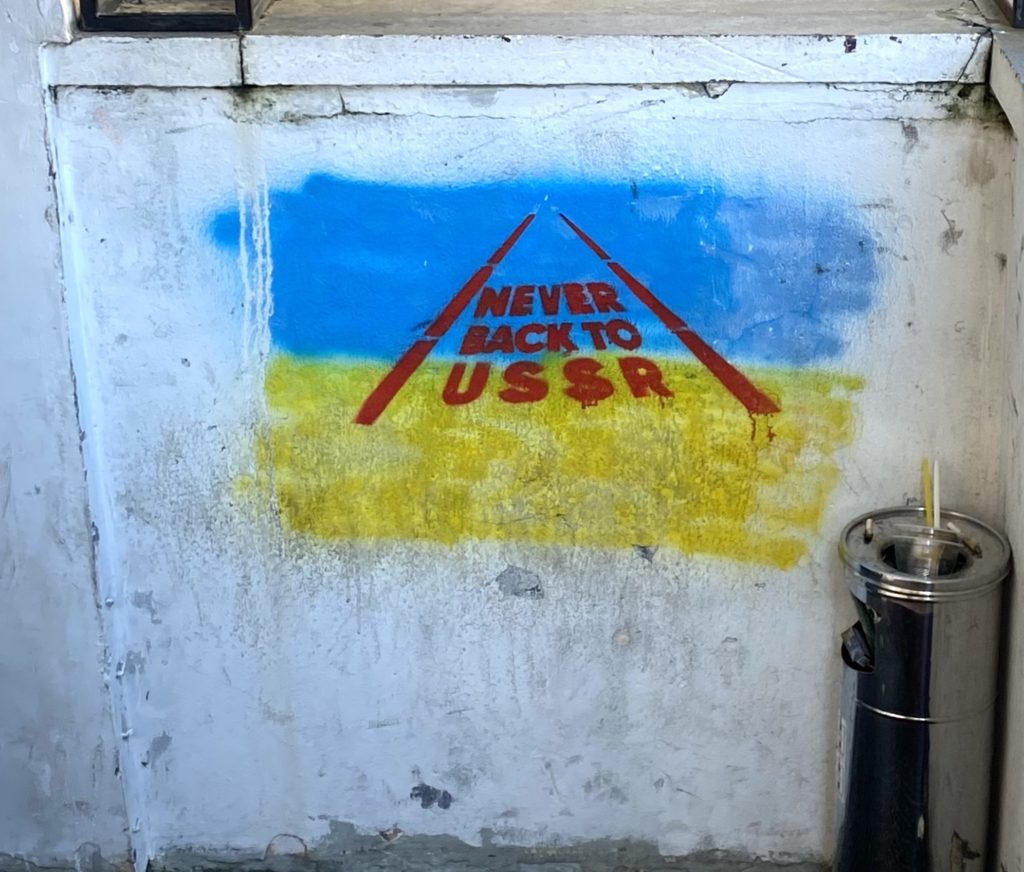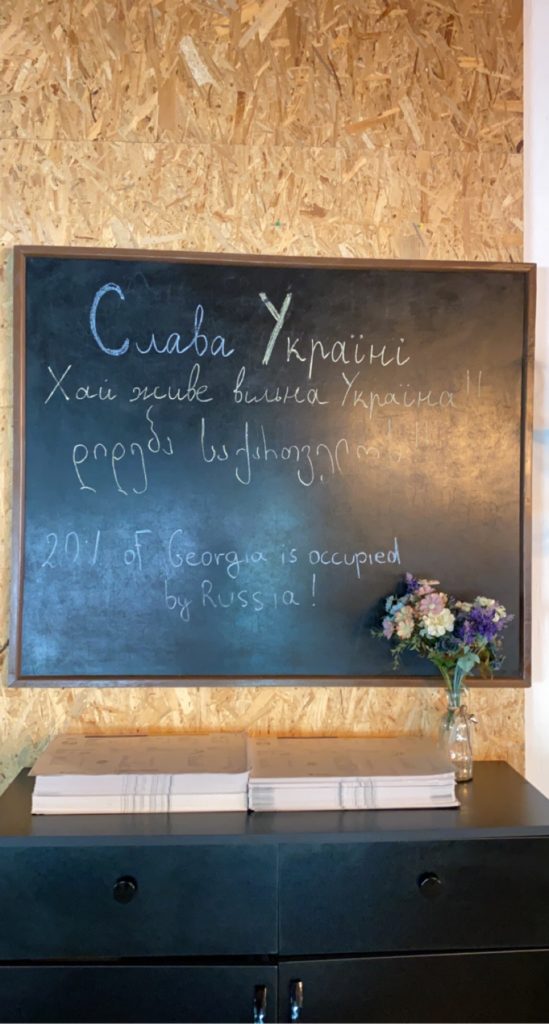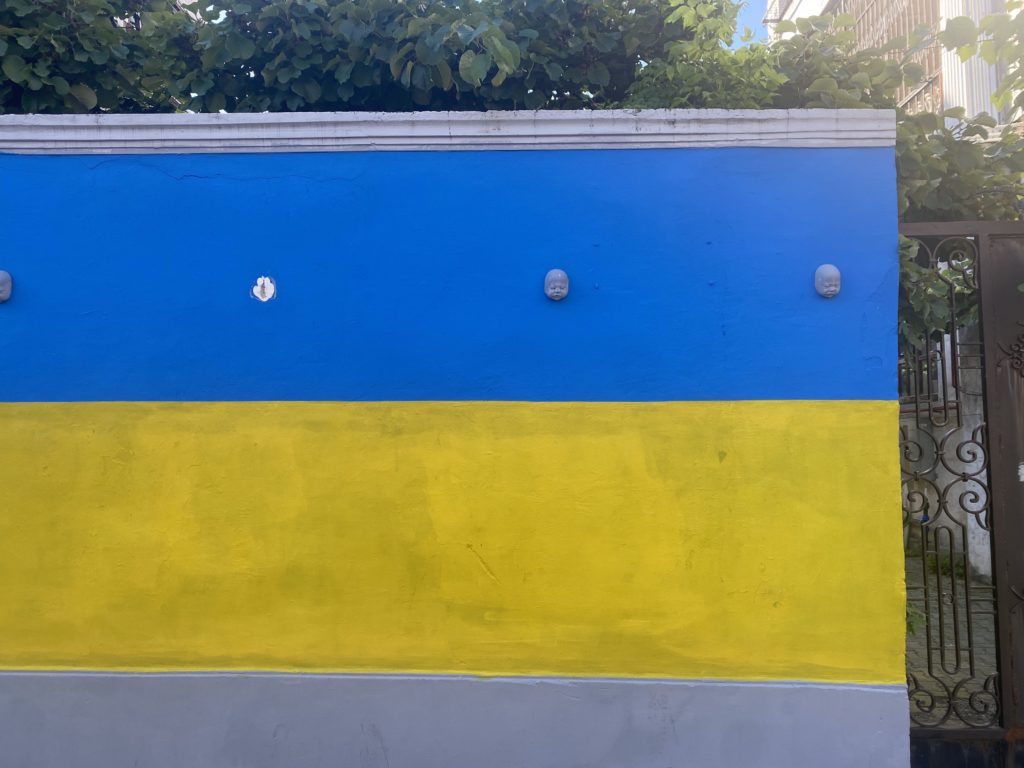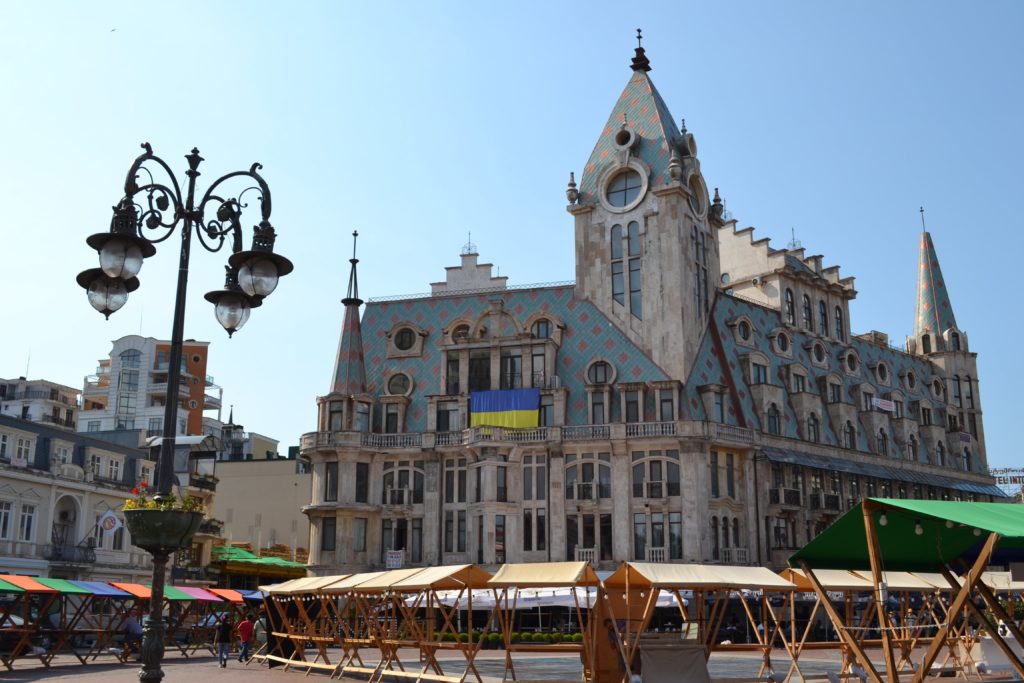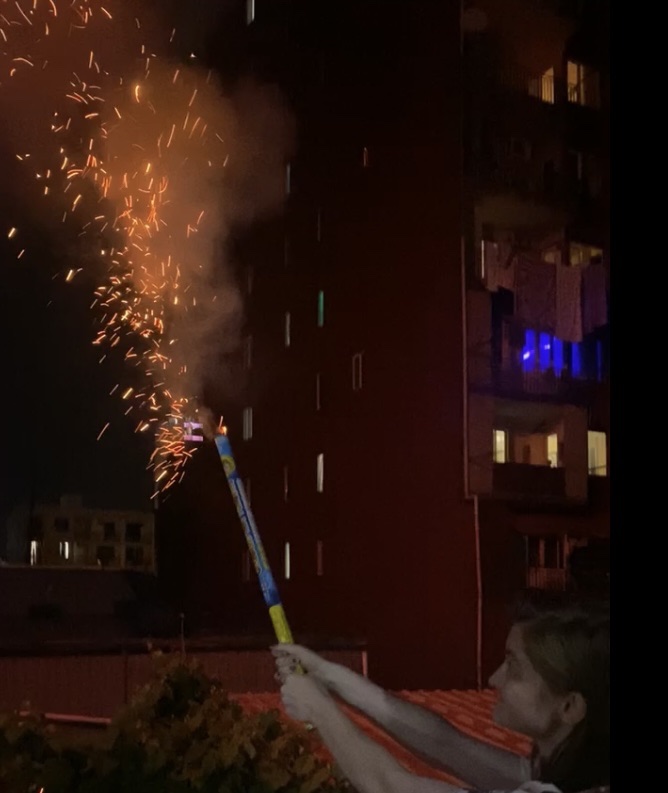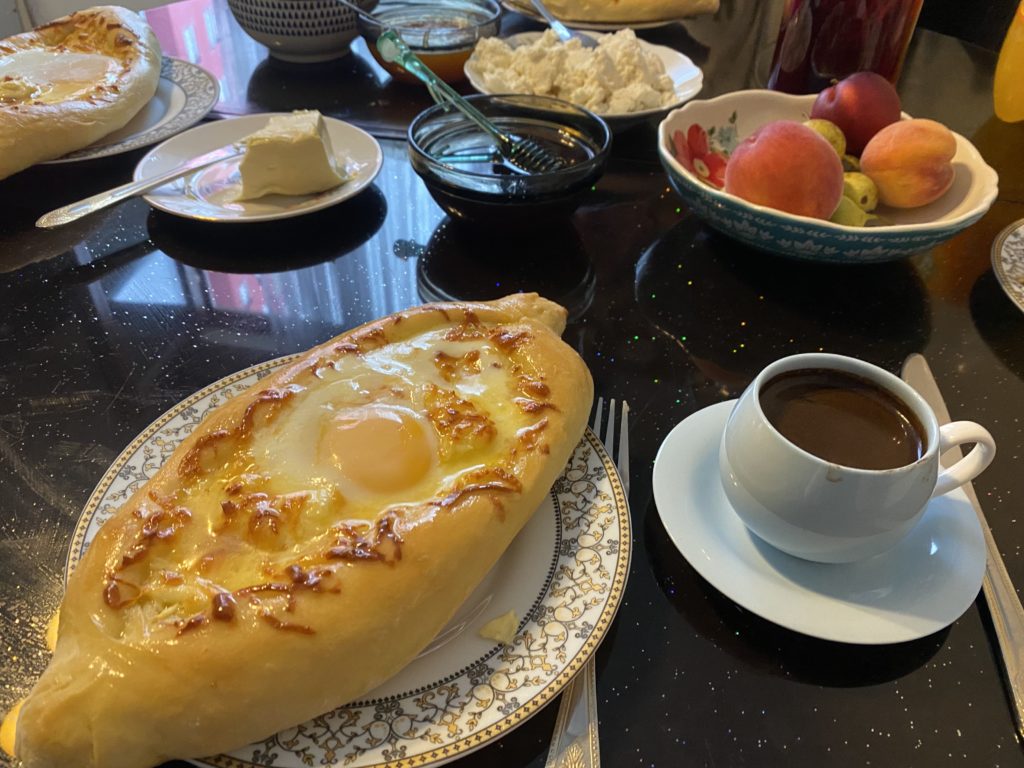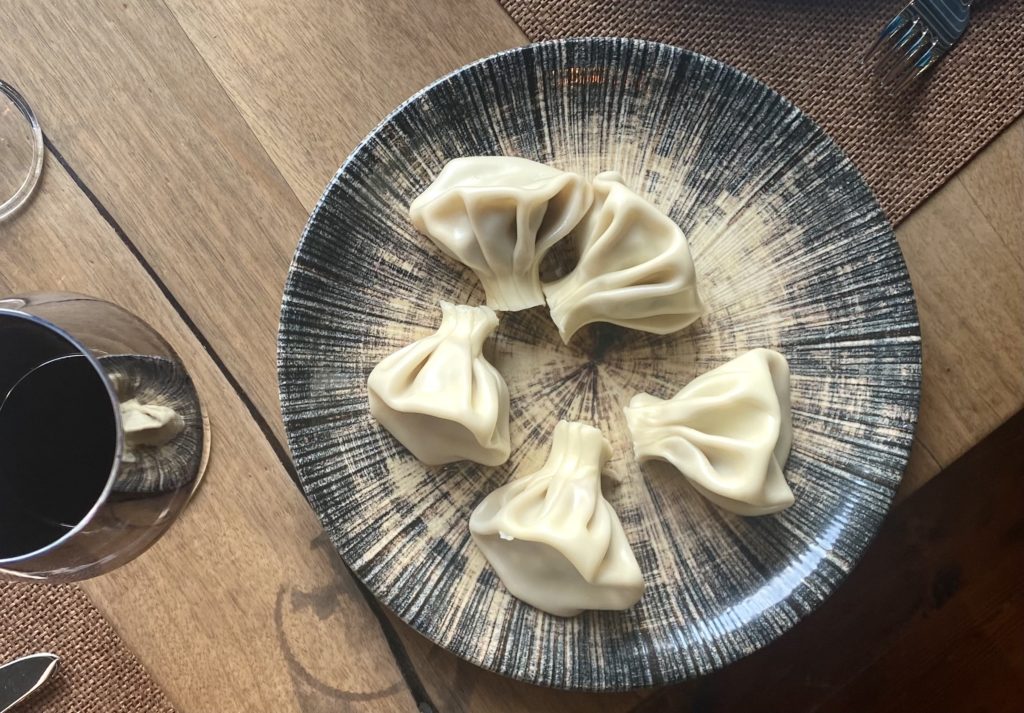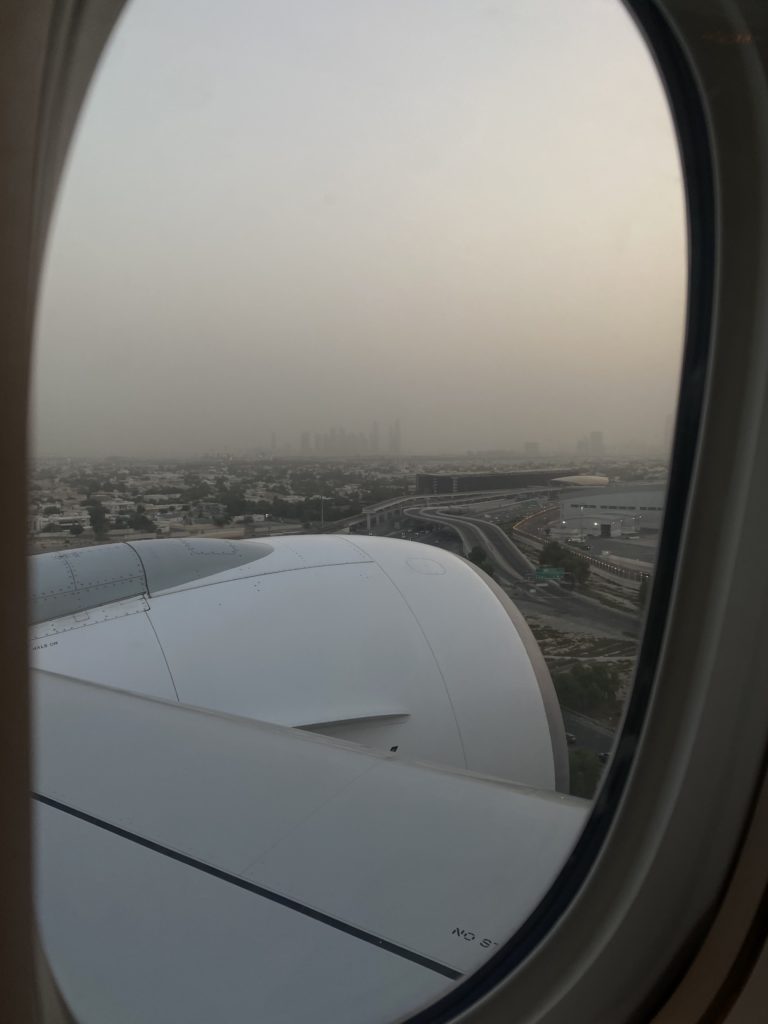გამარჯობა!
This summer was an incredible opportunity to not only develop my Russian language skills, but also engage with the beautiful language and culture of Georgia. I arrived in Georgia with very minimal knowledge about the country’s culture and history, and I left with a deep appreciation for Georgian people and their hospitality. I engaged with Georgian culture, especially through my host family, who welcomed us into their home, talked with us about Georgian history, culture, and politics, made excellent Georgian dishes, taught us how to cook khachapuri, and asked us about American culture. I am extraordinarily grateful for the opportunity to get to know them, and I am already planning to visit them again.
While I still have a long way to go in my study of Russian, being exposed to native Russian speakers was invaluable. I learned a lot about how to use Russian in everyday life, and I was reminded that language acquisition does not always happen linearly. Some days I felt like I was not improving at all, while other days I would find myself naturally incorporating new vocabulary or phrases into my daily conversations.
Overall, my experience in Georgia has widened my worldview and given me unique insight into current events. I have formed friendships with people from a variety of backgrounds that I hope will last a lifetime, and I am excited to continue to practice and develop my proficiency in the future.
Bridget
